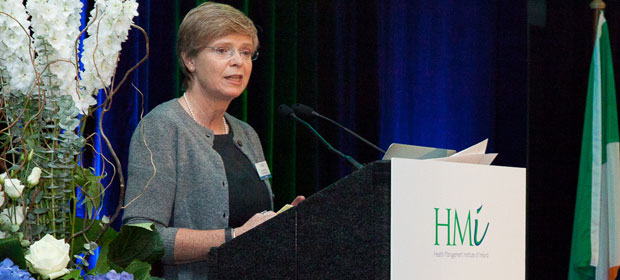A survey of health managers and senior policy makers last January revealed a big difference between healthcare priorities and the areas on which they were actually spending their time, Dr. Sarah Barry, Research Fellow at the Centre for Health Policy and Management at Trinity College, Dublin told the Conference.

Management priorities were ED waiting lists, Money Follows the Patient, Hospital Groups, Free GP Care, Healthy Ireland and UHI. However managers were spending their time on living within budget, managing change and HSE reorganisation.
The survey of 237 managers had a 41 per cent response rate. It was part of the Resilience Project, a collaboration between the Centre for Health Policy and Management TCD, the ESRI, the WHO Health Systems Strengthening, Barcelona, the European Observatory and the London School of Economics and was carried out between 2011 and 2014.
Interviews with seven managers and five hospital CEOs showed they were spending 46 per cent of their time on service delivery, 35 per cent on the change process and 19 per cent on organisational culture.
Managers were concerned that the divisional structure would further fragment care delivery and be detrimental to patient care and that they needed to manage this risk and there was no confidence that the new structures would improve patient care. They were also worried that there had been an absolute tsunami of cuts, no succession planning, no investment in management capability and insufficient accountants and IT staff . They felt there was no clear and simple path for transitioning through change, they are delivering the service in the face of bureaucracy, intransigence and insecurity and that that the bureaucracy of the HSE and its structures had been significantly disempowering
The bureaucracy of the HSE and its structures had been significantly disempowering.
One manager suggested that the HSE and the Department of Health should merge because it was hard to know who was who and what was what in the two organisations.
Dr. Barry said that the Resilience Project found that there were almost 600 more medical cards since 2005 but cost had shifted onto the old and the sick, with up to €100 in cost back on to all individuals since 2008.
It also found that the system had done more with less between 2007 and 2012 with efficiency gains and a less flabby system, but it had done less with less between 2012 and 2014, with service cuts and performance losses.
The survey showed that there was no shared assumption in practice that the current organisation, structures and strategies were no longer feasible. But it also found system fragmentation, constant organisational changes, different rationales, system and structure weakness and ambiguity and uncertainty in the political environment.
One manager suggested that the HSE and the Department of Health should merge because it was hard to know who was who and what was what in the two organisations.
Dr. Barry said there were three governing values driving healthcare delivery and reform in Ireland.
These were:
- Clinical Care – the drive for quality and safety in service delivery
- The Reform Policy – the drive for equal access/universal health care
- Austerity – the drive for efficiency and budget control
She said their analysis showed that these governing values definitely appeared to be in conflict in the present situation.
Managers surveyed believed that four critical-factor changes would make a real difference:
- Space for communication, dialogue, learning, understanding
- Better policy prioritisation and implementation
- Better management systems
- More/better human resources.

